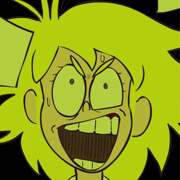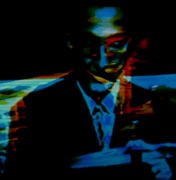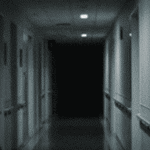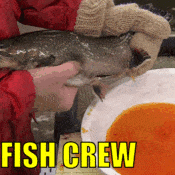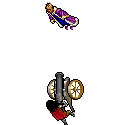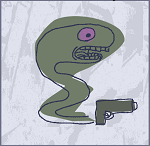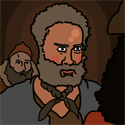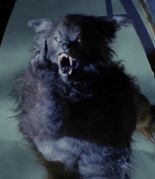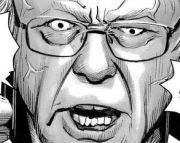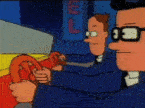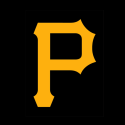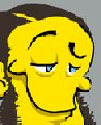|
On The Beach by Shute I'm surprised it's taken me this long to read it. I read a lot of post apocalyptic fiction and live in Australia. The plot is pretty sparse really, there's not a lot that actually happens and the focus is on the different personalities. How they interact, how they come to terms with impending death, etc. It's very moving. I put it in the same category as Alas Babylon, a very grounded and personal post-apocalyptic story.
|
|
|
|

|
| # ? Jun 5, 2024 21:28 |
|
Mojo Threepwood posted:I read A Spy Among Friends: Kim Philby and the Great Betrayal by Ben Macintyre. It is about the most damaging spy in MI6's history and spans the 1930s up until the early 1960s. The author does excellent work presenting his research and framing the story through relationships between spies, their families, countries, and competing agencies like MI5 and MI6. Checked it out on amazon and this was a recommended followup, check it out: http://www.amazon.com/Agent-Zigzag-Story-Espionage-Betrayal/dp/0307353419/ref=wl_mb_wl_huc_mrai_3_dp
|
|
|
|
Harry Potter & The Sorcerer's Stone by J.K. Rowling My grown, male friend (whose opinion I respect) really loves this series. I've seen the movies but never really cared to read the books but the cultural obsession over this series really made me curious. I mean, it's fine for a young adult novel, but it didn't enrapture me. It was full of plot holes and "magic saves the day" narrative structure but I was entertained, for the most part. I can't help but feel that J.K. was surprised at the popularity and started to take it more seriously as time went on. Room by Emma Donoghue This book tore my apart from the inside in the best way possible. It is one of those books where you forget the narrator is not real. I am kinda' scared to see the movie because I don't think a film could portray the child's mindset properly. This book was able to maintain a delicate balance of narrative vs. metaphor that drove a point home but allowed the characters to exist. Lord of the Rings: The Fellowship of the Ring by J.R.R. Tolkin I saw, and was not a big fan, of the movies. However, I started the book and couldn't put it down. The Border by Robert McCammon Robert McCammon is hit and miss with me. Boy's Life is, possible, my favorite book of all time but I couldn't even finish The Five, so I wasn't sure what to expect. The book revolves around a young man with amnesia on Earth while two different alien races are battling it out on our turf. A really compelling and quick read, but ultimately falls rather flat and heavyhanded. A Prayer Journal by Flannery O'Conner I love O'Conner's work and this is her journal while at a writer's workshop. It is only about 30 pages long but anyone who wants to be a writer should read this book. It is filled with her insecurities and fears, but also her flaws and desires as a human.
|
|
|
|
York_M_Chan posted:The Border by Robert McCammon I read Boy's Life a month or so ago, and I was completely blown away. It completely captured the magic and wonder of childhood imagination, but had this creepy, dark undertone throughout the whole thing. I don't even remember how I came across the book, but I'm incredibly glad I did.
|
|
|
|
York_M_Chan posted:Harry Potter & The Sorcerer's Stone by J.K. Rowling
|
|
|
|
A few days ago I got through Terms of Enlistment by Marko Kloos. I wasn't expecting much out of a Sad-Puppy-endorsed military scifi book, but this was surprisingly decent. It feels like an authentic depiction of military life (but in a future with rampant poverty that colonizing other planets has only exacerbated) that explains why someone would want to enlist and why they'd feel welcome there, without becoming too self-congratulatory about it. It has empathy for the people serving in the armed forces while expressing subtle cynicism about the rear end-covering circumstances in which they're used. My biggest problems are that I'm unsure of the ultimate point of the book (since it's the first in a series of at least four), and the 1st-person perspective leaves out some causes and explanations that I'd like to learn (How did the rioters in the Battle of Detroit get the hardware to kick the army's rear end?). If I didn't recently give myself a reading backlog for the Hugos, I'd move on to the next book without hesitation.
|
|
|
|
bowmore posted:The first book is easily the weakest, they get better later in the series. Book 3 is my favorite but book 5 through 7 are consistently fantastic. The one thing I truly love about the series is how it grew up along with its demographic. I was 10 or 11 when the first one came out, and it was cool how the characters and the books matured right along with me.
|
|
|
|
Taeke posted:The one thing I truly love about the series is how it grew up along with its demographic. I was 10 or 11 when the first one came out, and it was cool how the characters and the books matured right along with me.
|
|
|
|
William Gibson - The Peripheral I was completely entertained cover-to-cover as I usually am with Gibson. Very cynical and very dark without at all being hopeless or depressing. Cabbages and VHS fucked around with this message at 13:08 on Feb 11, 2016 |
|
|
|
Taeke posted:The one thing I truly love about the series is how it grew up along with its demographic. I was 10 or 11 when the first one came out, and it was cool how the characters and the books matured right along with me. I have fond memories of Deathly Hallows' release date at when I was at college. I stayed at the bookstore from opening to closing time, reading through the book as fast as I could.
|
|
|
|
Tim Raines IRL posted:William Gibson - The Peripheral Loved it start to finish. Probably his best in years, and I'm someone who's loved all of his novels.
|
|
|
|
Just finished re-reading The Stranger by Camus. Loved the first 3/4s but after the sentencing it gets a little too philosophical for my tastes.
|
|
|
|
Monday_ posted:Just finished re-reading The Stranger by Camus. Loved the first 3/4s but after the sentencing it gets a little too philosophical for my tastes. Oh gently caress, you got philosophy in my literature. Not cool dude
|
|
|
|
Wrapping up The Shadow of the Torturer by Gene Wolfe, and man is it good. I'm coming off of a Sanderson novel, and it's been great to read some well-written fantasy (I like Sanderson's ideas, but his prose is lacking). Really, I just like everything Wolfe has done in this book, and I look forward to continuing with the series after a bit of a fantasy break.
|
|
|
|
HereComesEverybody posted:Wrapping up The Shadow of the Torturer by Gene Wolfe, and man is it good. I'm coming off of a Sanderson novel, and it's been great to read some well-written fantasy (I like Sanderson's ideas, but his prose is lacking). Really, I just like everything Wolfe has done in this book, and I look forward to continuing with the series after a bit of a fantasy break. The Book of the New Sun is the best blending of literary and genre fiction I've ever read. I really ought to reread it sometime so I can pick out some details I missed the first time around.
|
|
|
|
Pausing between Shadow and Claw is going to be hilarious when you do get back to it.
|
|
|
|
Machiavelli in Hell by Sebastian de Graza. An entertaining intellectual biography if a bit obtuse when trying to explain the nuances of Machiavelli's philosophy. Really helped my understand the man beyond cliches like "Machiavellianism". "For love of country he pissed in many a snow" BravestOfTheLamps fucked around with this message at 19:49 on Feb 13, 2016 |
|
|
|
The 4th K by Mario Puzo. It is about a Kennedy nephew who is President. Written in 1990, if you enjoy political thrillers this is better than anything I have read recently. 10/10.
|
|
|
|
Nakar posted:Pausing between Shadow and Claw is going to be hilarious when you do get back to it. How so?
|
|
|
|
New World: An Anthology of Sci-Fi and Fantasy, edited by C. Spike Trotman. I helped kickstart this, and I'm really happy with how it turned out! A chunky anthology of 24 SF comics, all with the theme of "cultures colliding". As with any anthology there are some entries I liked a lot more than others, but the average quality is pretty high. There's space opera, philosophical sci-fi, post-apocalypse, comedy, sadness, and a whole host of creatures, human and non-human. My favourites included 'Peopleology', by Magera Gordon, 'The Book House', by Jonathon Dalton, 'Daikaiju, Die!', by Iris Jay & Nero O'Reilly, and 'The Numbers Game', by Jakob Free, Mark Pearce & Nic J Shaw.
|
|
|
|
The Isle of Blood (Monstrumologist #3) - Rick Yancey After the aimless, bloated nature of book 2, the series gets back to form with book 3. The central mystery is great, and the evolution of the characters is dark, subtle, organic, and unexpected. It also streamlines a unique philosophy for young adult novels - very Camus - which makes it a little more compelling than the usual Hunger Games-Twilight-whatever. I'm about halfway through book 4, which is the final one. After that, I'll keep my "forums promise" and read more literary/grownup books.
|
|
|
|
|
Solitair posted:A few days ago I got through Terms of Enlistment by Marko Kloos. I wasn't expecting much out of a Sad-Puppy-endorsed military scifi book, but this was surprisingly decent. It feels like an authentic depiction of military life (but in a future with rampant poverty that colonizing other planets has only exacerbated) that explains why someone would want to enlist and why they'd feel welcome there, without becoming too self-congratulatory about it. It has empathy for the people serving in the armed forces while expressing subtle cynicism about the rear end-covering circumstances in which they're used. My biggest problems are that I'm unsure of the ultimate point of the book (since it's the first in a series of at least four), and the 1st-person perspective leaves out some causes and explanations that I'd like to learn (How did the rioters in the Battle of Detroit get the hardware to kick the army's rear end?). If I didn't recently give myself a reading backlog for the Hugos, I'd move on to the next book without hesitation. Thought I was the only one who read and liked this book! Wish I could tell you how any of the subsequent book are but I stopped after there. Just finished A Wild Sheep Chase my Murakami. I liked it a lot, kind of like Chuck Palahniuk meets Kurt Vonnegut. I Bought Hard Boiled and plan on tearing through that. Any Murakami I should go after or avoid?
|
|
|
|
I just finished an interesting little history book: Hidden Warships: Finding World War II's Abandoned, Sunk, and Preserved Warships by Nicholas Veronico. The book covers the history and current status of quite a few ships sunk during and after the war. The history part of the relevant battles is pretty short and simple, more time is spent on the search for and review of the wrecks and preserved ships themselves. In order, the ships covered are: The five Japanese midget submarines from the Pearl Harbor attack. USS Arizona, with bits on USS Utah and the three American ships at Pearl Harbor that are still around today. HMS Repulse and Prince of Wales. Admiral Graf Spee U-550 Surviving intact u-boats in museums around the world. Truk lagoon The ships sunk in the Bikini Atoll nuclear tests (particular attention paid to Saratoga and Nagato). USS Grunnion The I-400 class Japanese aircraft carrier submarines (and a few other Japanese submarines discovered during the searches) PT 658, a fully restored US motor torpedo boat. USS Iowa The surviving Victory and Liberty ships. The book closes out with a beginner's guide to anyone interested in diving on shipwrecks or seeing them without the need to dive. Pretty interesting little book if the subject matter interests you.
|
|
|
|
HereComesEverybody posted:How so?
|
|
|
|
Vineland by Thomas Pynchon This and Against The Day are usually considered lesser-tier Pynchon. I went into it ready to defy that expectation, having loved his other two "California novels" (which this loosely connects with with themes and even shares some characters). And yet, everyone's kinda right about this novel landing flat. Loosely, this book is about Zoyd Wheeler and, more importantly, his daughter Prairie, looking into the past for wife/mother Frenesi (meaning "frenzy", also an anagram of "free sin"), a radical filmmaker who has been missing roughly since Prairie was born 14 years ago. It is 1984 (not a coincidence; there are plenty of Orwellian references), and the world is reeling from drug wars, punk rock, and Television. Pynchon's style has kept it's cinematic flair from Gravity's Rainbow, with pop culture and technology (and it's effects) saturating the text and minds of the characters, but the major device he's toying with is time. Within three paragraphs you may jump from '84 to '66 to '73 without so much as a contextual hint. It can be a bit hard to follow, but we are dealing with minds clouded by pot smoke, acid flashbacks and, again, Television. Not that the plot is the easiest to follow in general, favoring tangents featuring ninjas, a Godzilla attack, film reels from radical protests, dreams, hallucinations, re-runs of CHIPs, and allegorical folk tales. All staples of Pynchon, and reasons I love the guy. So what's the problem? Like every character in the book, my problem was Frenesi. Halfway through the book, we are introduced to DL, a feminist biker-turned-ninja and her partner Takeshi, a Japanese insurance investigator. All momentum stops to go into their 70 page history and friendship (allegorical for America and Japan's relationship after WW2?). Once we know their hosed-up "friendship", they introduce us to the heart of the novel, Frenesi. Frenesi's long and complicated history explores her start as a radical filmmaker leads her to an betraying the movement she represents at the hands of the novel's villain, Brock Vond. Through sexual seduction and mental manipulation, Frenesi is turned into a sex toy and a vicarious killer, though the facts and betrayal get convoluted. As a whole, this story is fascinating and exciting, but execution feels like...some thing's missing? Frenesi's story takes up more than a third of the novel. It also lacks the most heart. She is a tool, not a person. In fact, she's a bitch, hurting everyone around her. When the book is concentrating on the actual heart of the book, Zoyd, a man who loved and lost and now just wants to be a good father, and Prairie, a girl who's never been complete because of her missing mother, it is phenominal. It is Pynchon's most emotionally satisfying and sentimental story arcs since the sad tale of Roger Mexico, and yet it doesn't do the same for Frenesi, our MacGuffin, our mystery. Despite the slog of the middle of the book, Vineland could do to spend more time than its less-than-400 page story. The story is told in only 15 chapters.We rush through the final events of the book in a single 70 page chapter to wrap up every character arc, which it does successfully, but not satisfyingly. There are no loose ends, sure, but there could be more. The thing is, "Pynchon's worst book" is still a fantastic, funny read. Zoyd and Prairie are wonderful, there are hilarious moments throughout, and the exploration of the 60's repercussions echoing into an Orwellian 1984 is fascinating. It just seems odd that people waited 12 years for a book that eventually feels kinda rushed. Recommended, nonetheless.
|
|
|
|
Gertrude Perkins posted:New World: An Anthology of Sci-Fi and Fantasy, edited by C. Spike Trotman. I helped kickstart this, and I'm really happy with how it turned out! A chunky anthology of 24 SF comics, all with the theme of "cultures colliding". As with any anthology there are some entries I liked a lot more than others, but the average quality is pretty high. There's space opera, philosophical sci-fi, post-apocalypse, comedy, sadness, and a whole host of creatures, human and non-human. My favourites included 'Peopleology', by Magera Gordon, 'The Book House', by Jonathon Dalton, 'Daikaiju, Die!', by Iris Jay & Nero O'Reilly, and 'The Numbers Game', by Jakob Free, Mark Pearce & Nic J Shaw. This sounds cool, is it for sale anywhere?
|
|
|
|
I finished The Water Knife by Paolo Bacigalupi. In parts it felt like post-cyberpunk boilerplate and in others it felt fresh and new. His vision of a dry apocalypse going down in Phoenix was compelling and he often manages a sucker punch with the bleak moments.
|
|
|
|
http://www.amazon.com/Chuck-Tingle/e/B00SF2MTYK I'm gay for my living billionaire jetplane. Very well writtem human/airplane erotica
|
|
|
|
Hedrigall posted:This sounds cool, is it for sale anywhere? Not yet, to my knowledge. KS backers are getting sent the physical book at some point in the next month, but we were sent digital copies already. Check your PMs though!
|
|
|
|
The Final Descent (Monstrumologist #4) - Rick Yancey The series ends with a thud. It took the more interesting character concepts to the extreme. Unlikable-but-redemptive turned into pure assholery. Nihilist tendencies grew into absolute pitch-black-souless pits. It tried the whole "what you really thought about these characters was ALL WRONG" but it didn't work and it sucked. That being said, the structure of the novel switched things up from the other novels and provided a good hook. The monster at the center of the story was cool. The series had a gory, bleak edge to it that continued through this. It's just a shame about the hows and whys it decided to conclude with.
|
|
|
|
|
I just finished Harry Potter and the Prisoner of Azkaban. Really enjoyed it, much longer and darker than the first two in the series. I knew Scabbers would be an important part of the plot later on, Rowling was spending too much time describing him every chapter. And I also had a nagging feeling Black wasn't really the bad guy . Very excited for the next one in the series as all many friends have told me it is the best one.
|
|
|
|
I finished "The Martian" by Andy Weir. It was really entertaining. Although I did notice the lack of psychological complications in extended isolation. Other than the occasional "this really sucks" he never really notes how his mental state is. He wasn't in contact with Earth for a good bit of time and that'll make anyone loopy after a while.
|
|
|
|
|
Just finished A Short History of Nearly Everything by Bill Bryson. Thoroughly entertaining--love his almost Douglas Adams-esque humor. And, wow, scientists can be catty. Anyway, the only thing is that the book could benefit from updated edition--a few things have changed since it was published, and some of the dates he listed have come and gone. Still, for an easy to read, accessible book about general science, I'd highly recommend it.
|
|
|
|
skooma512 posted:I finished "The Martian" by Andy Weir. It was really entertaining. Although I did notice the lack of psychological complications in extended isolation. Other than the occasional "this really sucks" he never really notes how his mental state is. He wasn't in contact with Earth for a good bit of time and that'll make anyone loopy after a while. I'm not sure that would be a factor with highly trained astronauts, it's almost like they are a different species of human. The testing they go through to prove they have "The Right Stuff" is pretty extreme. I should really go read a book specifically about it, it's a highly interesting topic.
|
|
|
|
Bullbar posted:I finished The Water Knife by Paolo Bacigalupi. In parts it felt like post-cyberpunk boilerplate and in others it felt fresh and new. His vision of a dry apocalypse going down in Phoenix was compelling and he often manages a sucker punch with the bleak moments. I just finished this as well. The difference is, my family lives in the American Southwest, so... I'm recommending some books to them now.
|
|
|
|
The Cuckoo's Calling by J.K Rowling under the pseudonym Robert Galbraith, if you'd rather not know. I think I would have rather not known, in the end. Pretty good detective novel about a former army vet/unwanted offspring of a rockstar and a groupie turned private detective, assisted by an unexpectedly competent secretary who always wanted to be in a detective story. A lot of the plot beats go the way you'd expect and the evidence used to convict the killer seemed tenuous at best. But it was a fun enough story and the mystery was solid. The characters are genuinely interesting and likable. "Galbraith" didn't go for an obvious route and have the assistant dump her fiance and go for the detective. They didn't even have that much sexual tension, instead having more of just two people trying to figure out a friendship. Its really interesting. Nothing special, but it was a pretty good read.
|
|
|
|
RiotGearEpsilon posted:I just finished this as well. The difference is, my family lives in the American Southwest, so... I'm recommending some books to them now. What books, out of curiosity
|
|
|
|
The Gondola Scam, by Jonathan Gash - I got this book because of the blurb: 'Can one person - even Lovejoy, the quintessential rogue - steal all the antiques in Venice?' And by the time I was halfway through I realised I didn't care whether or not he could. Lovejoy is a weasely, sexist twerp, and the other characters are even less well-drawn, especially the women (even for 1986!). Two good things this book does: I learned a fair bit about art forgery, and about the architecture of Venice. In fact, Gash probably went on a nice holiday to Venice and thought he could use his travel diary as the basis for another book - it seems this is actually the sixth Lovejoy "mystery", so maybe he was just out of ideas at this point. It didn't make me want to go back and read any more, though. I preferred this book when it was just a silly title and a great tagline. Bad Feminist, by Roxane Gay. A collection of essays by writer, cultural critic and self-described "bad feminist" Roxane Gay. A lot of the essays and articles surround current events from the last few years, from high-profile rape cases to major film releases. A large chunk of the book is Gay's writings on film and music, linking particular works and artists to their racial and patriachal contexts - her own writing comes under scrutiny, too. There are also a fair few more autobiographical pieces, where Gay discusses her own life, experiences, and her relationship with ideas of gender, race and activism. At times the book can be really jarring, as an anecdote about teenage uncertainty turns into a frank and vivid discussion of her own sexual abuse. She has a strong voice, and even the most innocuous-seeming essay (like, for instance, her brief career in professional Scrabble) feels important. Dept. Of Speculation, by Jenny Offill - Short, sweet and sad, this is the story of a woman and her life with a husband and daughter over several years. It's told through short snapshots and brief thoughts, letting the reader piece together the surrounding details about big, sudden changes and gradual shifts. It's a style that works pretty well, and also gives the book a more wistful, nostalgic feel, the prose rendered in vivid memories, quotations and snippets of conversation. I liked this book - it was fast but engrossing.
|
|
|
|
Bullbar posted:What books, out of curiosity The Water Knife and, as soon as I finish it, probably also Cadillac Desert.
|
|
|
|

|
| # ? Jun 5, 2024 21:28 |
|
The Sheep Look Up by John Brunner. I'm surprised this book isn't mentioned a lot more. I can't even remember how I came across it, maybe through recommendations in Goodreads/Amazon from all the post-apocalyptic fiction I read. It was written in the early 1970's and it's quite prophetic in a lot of ways - cities with unsafe drinking water, life expectancy going down, increased corporate influence in government, drug resistant disease, chemical resistant pests, large scale illness outbreaks from food products, etc. It's written in an odd style, jumping between episodes of unrelated characters/events and small transcripts of things like news reports. Can be quite difficult to keep track of the different characters and in the beginning at least it's not clear whether you're reading some isolated little vignette that's there to establish the setting or something that's part of the larger story. The writing could have used a little more restraint in places, the character Austin Train is the perfect humble martyrly genius academic that chooses a life of obscurity and manual labour because no one heeds his warnings. Also he can make people break into tears and do a 180 degree change in their personal worldview just by speaking to them face to face, so basically an environmentalist John Galt. Some of the very bad things that happen to innocent people in the book seem cartoonishly bad at times. The ending is a little underwhelming and abrupt, but overall I enjoyed reading it.
|
|
|








